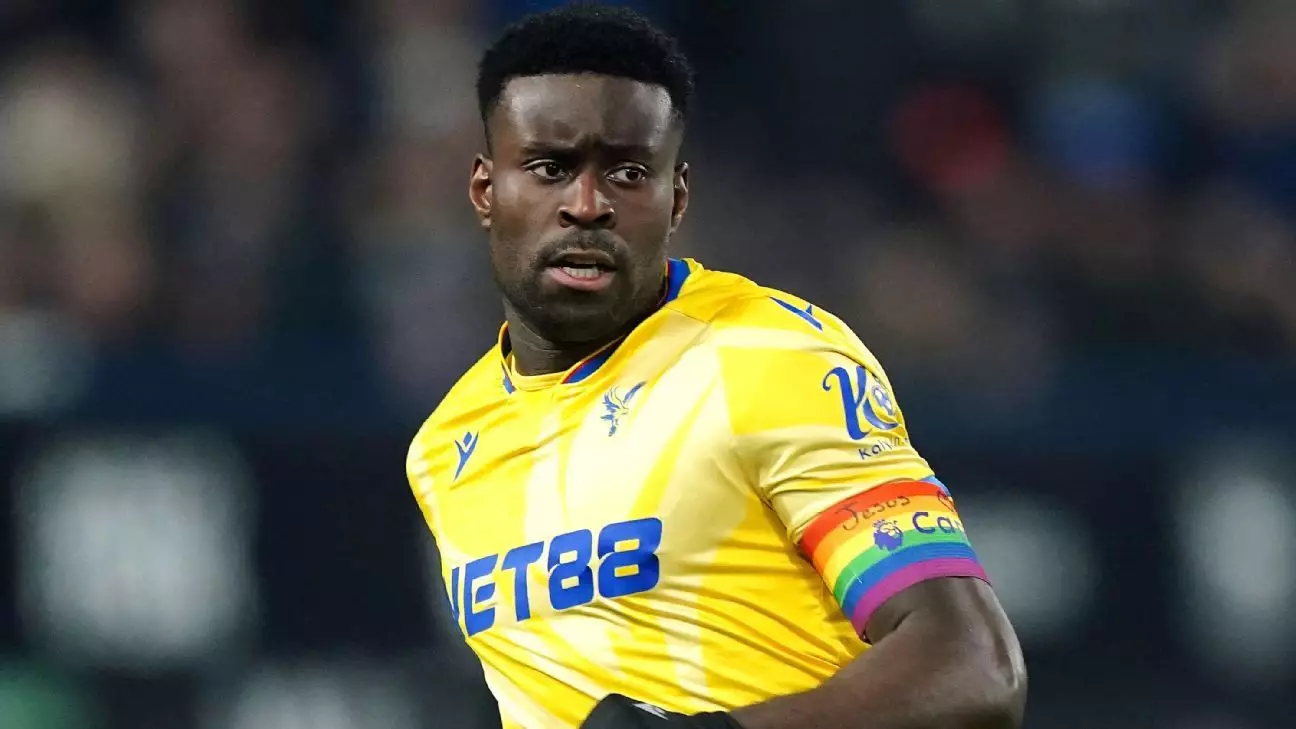In the world of football, where sport intertwines with various social issues, the clash between personal beliefs and organizational policies often leads to heated debates. A recent incident involving Crystal Palace defender Marc Guéhi has highlighted this tension, as he made a bold statement on his captain’s armband during a match against Ipswich Town. Guéhi, a devout Christian, inscribed the phrase “Jesus loves you” on his rainbow-coloured armband, designed to support the LGBTQ+ community. This act not only initiated discussions about the intersection of faith and social acceptance but also revealed the complexities behind football’s governing policies regarding what players can display on their attire.
The rainbow-coloured armbands were distributed to clubs participating in the Premier League as part of the Stonewall’s Rainbow Laces campaign, which champions inclusivity within the sport. These armbands serve as a potent symbol for the LGBTQ+ community, emphasizing that football is a sport for everyone, irrespective of sexual orientation or gender identity. The directive from the Football Association (FA) stressed the need for these armbands to remain free of any religious or political messages, as specified under Rule A4 of the FA’s kit regulations. This brings into question the role of athletes in navigating their personal beliefs while adhering to team and league policies.
While Guéhi initially avoided punishment for a similarly worded message on a previous occasion, the FA’s stern reminder underlines the seriousness of adhering to these rules. The modified regulations established last summer aimed to prevent players from using official team attire as a platform for personal statements. In a sport that holds a global audience, the governing bodies seek to maintain a neutral image, requiring that all actions during matches conform to established guidelines. The rule not only ensures compliance but also mitigates the risk of alienating fans who may hold strong divergent views.
The situation also reflects how individual player choices can resonate beyond the pitch. Ipswich midfielder Sam Morsy, a practicing Muslim, opted to wear a traditional black armband instead of the rainbow variation, demonstrating his personal conviction while choosing not to engage with the social message. The FA’s position on Morsy’s choice illustrates their desire to respect personal beliefs while ensuring compliance with league requirements. This highlights a broader narrative in sports—how players balance their individual values with the expectations set forth by their teams and governing bodies.
As football continues to grapple with issues of identity, representation, and inclusivity, the interplay between personal beliefs and institutional regulations remains a pertinent topic. While Guéhi’s actions highlight the importance of personal expression, they also pose challenging questions about the boundaries of such expressions within the sport. The intersection of faith and advocacy is undeniably complex, and as discussions evolve, it is evident that football must navigate this landscape with sensitivity and foresight, ensuring that every player’s voice contributes to a richer, more inclusive dialogue within the beautiful game.

Leave a Reply